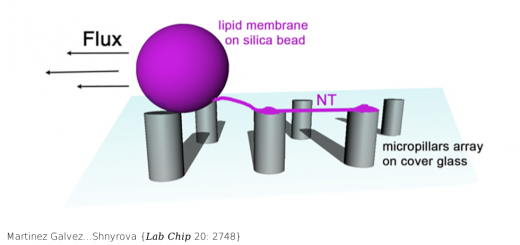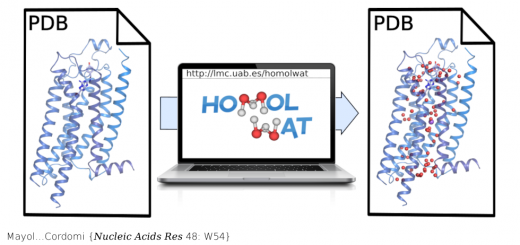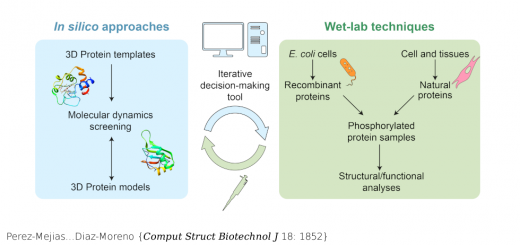Force-Dependent Folding and Unfolding Kinetics in DNA Hairpins Reveals Transition-State Displacements along a Single Pathway

Schematic picture of the folding free energy landscape of a DNA hairpin mechanically stretched with optical tweezers. The transition state (TS) is the separatrix between the native-folded (N) and unfolded (U) basins of attraction.
Alemany A, Ritort F.
J Phys Chem Lett 2017 Mar.; 8: 895.
Biomolecules diffusively explore their energy landscape overcoming energy barriers via thermally activated processes to reach the biologically relevant conformation. Mechanically induced unfolding and folding reactions offer an excellent playground to feature these processes at the single-molecule level by monitoring changes in the molecular extension. Here we investigate two-state DNA hairpins designed to have the transition states at different locations. We use optical tweezers to characterize the force-dependent behavior of the kinetic barrier from nonequilibrium pulling experiments by using the continuous effective barrier approach (CEBA). We introduce the mechanical fragility and the molecular transition-state susceptibility, both useful quantities to characterize the response of the transition state to an applied force. Our results demonstrate the validity of the Leffler-Hammond postulate where the transition state approaches the folded state as force increases, implying monotonically decreasing fragility with force and a non-negative transition state susceptibility at all forces.
PubMed: 28150950. Doi: 10.1021/acs.jpclett.6b02687.




